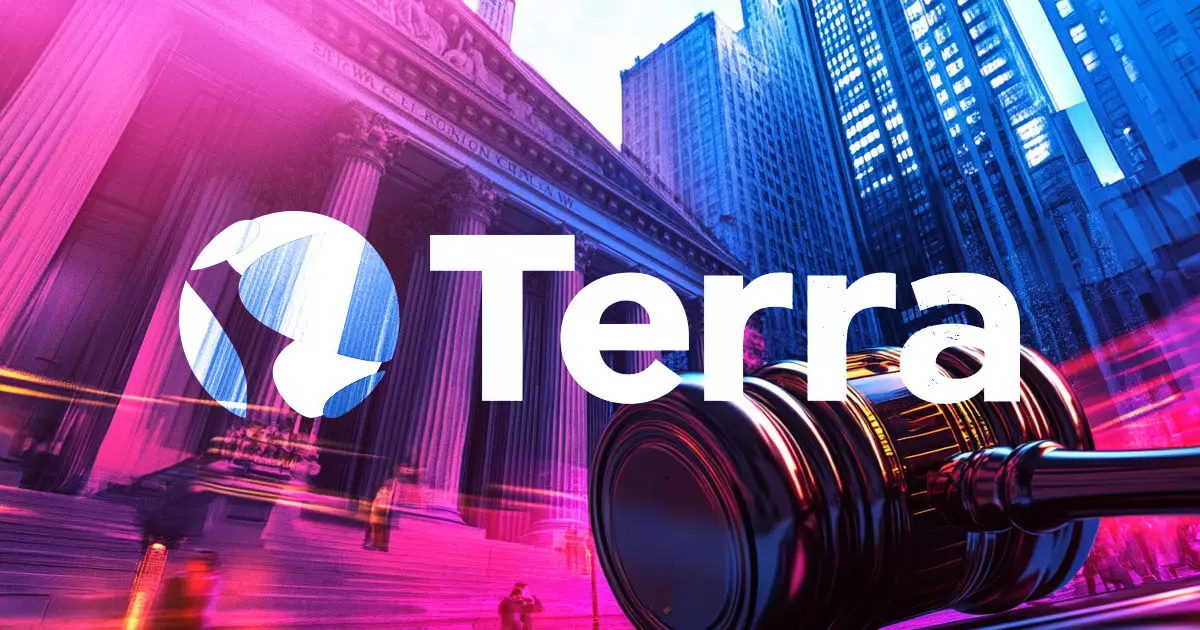In recent months, the Securities and Exchange Commission (SEC) has brought serious charges against Tai Mo Shan Limited, a subsidiary of the controversial crypto entity Jump Crypto. The crux of the allegations revolves around misleading investors about the stability of Terra USD (UST) after its tumultuous loss of the $1 peg in May 2021. Central to the SEC’s claims is the assertion that Tai Mo Shan engaged in trades that conveyed a false sense of security regarding UST’s algorithmic stability—a claim that, if proven, could have far-reaching implications for investor trust and regulatory frameworks in the cryptocurrency market.
The SEC’s claims are deeply interwoven with the history of UST and its notorious failure. Following the collapse, it was discovered that Terraform Labs had enlisted the help of Tai Mo Shan to purchase over $20 million worth of UST in a bid to prop up its value. This intervention was strategically positioned as a validation of the algorithmic mechanism underpinning UST, which Terraform had marketed as a self-sustaining model for maintaining its dollar peg. However, the SEC argues that this was a facade, with the true stability of UST reliant on Tai Mo Shan’s external financial support.
What makes this situation particularly alarming is the nature of the transactions that Tai Mo Shan was involved in. It has come to light that these trades included incentives allowing Tai Mo Shan to acquire LUNA—a native cryptocurrency of the Terra ecosystem—at a significant discount once UST regained its stability. By distributing LUNA in a manner that the SEC deems unregistered, Tai Mo Shan has been classified as a statutory underwriter, raising questions about regulatory adherence in a sector often criticized for its lack of oversight.
This situation serves not only as a critical examination of Tai Mo Shan’s actions but also as a reflection of broader failings within the Terra ecosystem. Terra has faced intensified scrutiny following the UST collapse, exposing glaring deficiencies in its initially touted stablecoin model, which has led to a staggering erosion of market confidence. The fallout has culminated in significant financial losses, estimated at over $40 billion, signaling the urgent need for clearer regulatory guidelines as the crypto landscape continues to evolve.
The Broader Implications for Terra and the Cryptocurrency Market
The ramifications of the SEC’s case extend beyond just Tai Mo Shan and Terraform Labs; they suggest a more complex network of accountability within the cryptocurrency market. As investigations into other tokens linked to Terraform ramp up, there is growing scrutiny of how these assets are offered and marketed. With several Terra-linked tokens already designated as securities by the SEC, it becomes evident that the need for transparency and proper disclosures is pressing.
The consequences for Terraform Labs, co-founded by Do Kwon, have been substantial. The firm has faced multiple legal challenges and public backlash, including a recent Chapter 11 bankruptcy filing in January 2024, which revealed staggering assets and liabilities estimated between $100 million and $500 million. The shifting leadership, especially with Chris Amani stepping in as CEO, underscores the turmoil the organization is facing as it seeks a pathway to recovery while navigating through legal quagmires.
As Terraform attempts to distance itself from the identifying fallout of LUNA’s collapse, its efforts to re-establish credibility are fraught with challenges. The launch of a new Terra (LUNA) token has not been able to shake off the negative perceptions tied to its predecessor. Market participants remain skeptical, and ongoing controversies only further cloud the future prospects of the brand.
Adding to the complexity, allegations from industry players—such as a co-founder of Three Arrows Capital claiming collusion between Digital Currency Group and FTX against Terra—have cast greater shadows over what is already a tumultuous reputation. Investors and regulators alike are watching closely as the situation unfolds, now compounded by Do Kwon’s legal battles, including his conviction in Montenegro.
The situation surrounding Terra, UST, and Tai Mo Shan highlights significant gaps in crypto regulation and underscores the urgent need for clearer frameworks as the digital currency landscape continues to evolve. The SEC’s decisive action may serve as a catalyst for increased scrutiny and regulation across the sector, fostering a more transparent environment where investor confidence can be rebuilt. The lessons learned from the Terra saga will undoubtedly influence the future of cryptocurrency regulation and the standards to which digital assets will be held accountable. As this narrative continues to evolve, the crypto community must confront the implications of these developments, aiming for a sustainable and trust-filled future.


Leave a Reply